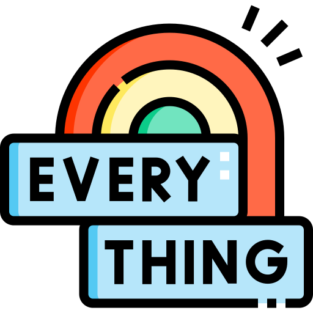How to say thank you in Portuguese
Hi, how are you? In this post, I’m going to teach you how to thank you in Portuguese. Someone did something super cool for you and you don’t know what to say. By the way, you may know how to say “thank you” in Portuguese, but do you really know how to use it? In this post you will learn if you must use obrigada or obrigado.
But before we start, Comment down here if you already knew this rule or if this is something totally new for you. This tip I’ll give you now is very important for anyone who wants to speak Portuguese naturally! So don’t stop reading until the end!
And if you’re learning Portuguese and don’t want to miss any of our tips, subscribe to our YouTube channel. You will find new videos every week. By the way there is one about Obrigada or Obrigado. Click here to watch it.
And there’s one more important thing: here on our blog, you’ll find several super interesting articles that will help you improve your Portuguese even more! For example, you can read here about Feminine and Masculine words in Brazilian Portuguese.
Obrigada or Obrigado?
So here we go: Obrigada or obrigado is what we use in Portuguese to say thank you, to say “thank you”. But why do we have two options? What is the difference between them? That’s what I’m going to teach you in this post! Shall we go there?
“Obrigado” should only be used by men, while “obrigada” by women. It’s like an adjective that characterizes how the speaker feels: I feel like I have an obligation to you because you did me a favor. So, as I am a woman, I must use an adjective in the feminine gender, so OBRIGADA. If you are male, on the other hand, you should use the adjective in the male gender, OBRIGADO.
See? It’s pretty simple.
Examples of obrigada or obrigado – take the test
Let’s see some examples for you to test your knowledge:
If someone says: Obrigada pela ajuda.
Is this person male or female?
Hmm… you were right if you said woman. That’s right!
And now: Obrigado por tudo!
Tell me there: male or female?
The adjective is in the masculine Gender so it’s a man, right?
Very good!
Got it?
Do you want more example? Which of the following two sentences is said by a woman?
Obrigado por ter vindo!
Obrigada pela sua presença.
You’re right if you said it’s the second sentence! Excellent!
Now whenever you need to thank someone for something, you know how to say it correctly!
How to intensify your thanks:
What if you want to intensify your thanks?
Then you can say: muito obrigada/obrigado
Or: muitíssimo obrigada/obrigado
Just add the adverb “muito” before “obrigada” or “obrigado”. Did you realize it’s the inverse of English? In English, you say: “thank you very much” / or “thank you a lot”.
In Italian, too: “grazie mille”
But in Spanish, you can say it just like we say in Portuguese: “muchas gracias”.
Intensifying the thanks with the word “mesmo”:
I’ll teach you another way to intensify the thanks, adding the word “mesmo” at the end. It’s a very common way used by the natives of Brazil.
We used to say: “muito obrigado mesmo” Or “muito obrigada mesmo”
“Mesmo” here in this case can mean “really”. So it would be something like “thank you reeeeeally much!”
Formal and informal ways to say thanks:
Maybe you’re wondering there: but there’s only “obrigada” and “obrigado” to say thanks in Portuguese?
No! Not only that!
“Obrigada” and “obrigado” are the most common forms and can be used in any situation, be it informal situations, such as when you need to thank a friend or in formal situations, when you go to thank your boss at work.
But there are other ways to say thanks. These are more formal and more informal ways of saying “obrigada” / “obrigado”.
Let’s start with the informal ones:
The first informal way is just to take the first letter O from the word obrigada/obrigado and say: brigada/brigado. it will already sound very natural. Just like a native!
You can also say: valeu!
Or: brigadão!
Now let’s look at two formal ways to give thanks:
You can say: grata/grato
And agradecida/agradecido
They both mean “grateful!”
So, imagine. A friend of yours gives you a really cool gift!
Then you say:
- Nossa, cara! Brigadão! Eu amei o presente! (Wow, man! Thank you! I loved the gift!)
Or, you got promoted at work and then your dad says:
- Parabéns pela promoção no trabalho, filho! Você mereceu! (Congratulations on your promotion at work, son! You deserved it!)
And you answer: - Valeu, pai! (Thanks, Dad!)
Now imagine that you are writing an email making a request and then at the end of the email you say thank you. You might end up with “Grata/grato”, for example!
Can you think of other contexts to use these ways of giving thanks? Comment here below this post and tell me!
And don’t forget to share this post with the people you think will benefit from this content too!
A hug and see you next tip!
Bye, bye
Como dizer “thank you” em português
Oooi , tudo bem? Neste post, eu vou te ensinar como agradecer em português. Alguém fez uma coisa super legal pra você e você não sabe o que dizer. Aliás, você até pode saber como dizer “thank you” em português, mas será que você sabe mesmo como usar? Neste post, eu vou te ensinar quando você deve usar obrigada ou obrigado.
Mas antes de a gente começar, Comenta aqui embaixo se você já sabia dessa regra ou se isso é algo totalmente novo pra você. Essa dica que eu vou te dar agora é muito importante pra quem quer falar português com naturalidade! Por isso, não deixa de ler até o final!
E se você tá aprendendo português e não quer perder nenhuma dica nossa, se inscreve no nosso canal do Youtube. Você encontrará novos vídeos todas as semanas. A propósito, tem um sobre Obrigada ou Obrigado. Clique aqui para assistir.
E tem mais uma coisa importante: aqui no nosso blog, você encontra vários artigos super interessantes que vão te ajudar a aprimorar ainda mais seu português! Por exemplo, você pode ler aqui sobre como
Obrigada ou Obrigado?
Então vamo lá: Obrigada ou obrigado é o que usamos em português para agradecer, para dizer “thank you”. Mas por que temos duas opções? Qual a diferença entre eles? É isso que vou te ensinar neste post! Vamo lá?
“Obrigado” deve ser usado apenas por homens, enquanto “obrigada”, por mulheres. É como se fosse um adjetivo que caracteriza como a pessoa que fala se sente: eu sinto como se eu tivesse uma obrigação com você porque você me fez um favor. Então, como eu sou mulher, eu devo usar um adjetivo no gênero feminino, por isso OBRIGADA. Se você é homem, por outro lado, você deve usar o adjetivo no gênero masculino, OBRIGADO.
Viu? É bem simples.
Exemplos de obrigada ou obrigado – faça o teste:
Vamos ver alguns exemplos pra você testar seu conhecimento:
Se alguém diz: Obrigada pela ajuda.
Essa pessoa é homem ou mulher?
Humm… acertou se você disse mulher. É isso mesmo!
E agora: Obrigado por tudo!
Me diz aí: homem ou mulher?
O adjetivo tá no Gênero masculino então é homem, né?
Muito bem!
Entendeu?
Quer mais exemplo? Qual das duas frases a seguir é dita por uma mulher?
Obrigado por ter vindo!
Obrigada pela sua presença.
Acertou se você disse que é a segunda frase! Excelente!
Agora sempre que você precisar agradecer alguém por alguma coisa, você já sabe como dizer corretamente!
Como intensificar o agradecimento?
E se você quiser intensificar o seu agradecimento?
Então, voce pode dizer: muito obrigado/ muito obrigada
Ou: muitíssimo obrigado/ muitíssimo obrigada
É só adicionar o advérbio “muito” antes de “obrigado” ou “obrigada”. Percebeu que é o inverso do inglês? Em inglês, você diz: “thank you very much” / or “thank you a lot”.
Em italiano, também: “grazie mille”
Mas em espanhol, você pode dizer igual a gente diz em português: “muchas gracias”.
Intensificando o agradecimento com a palavra “mesmo”
Vou te ensinar um outro jeito de intensificar o agradecimento, acrescentando a palavra “mesmo” no final. É um jeito muito comum usado pelos nativos do Brasil.
A gente costuma dizer: “muito obrigada mesmo!” Ou “muito obrigado mesmo!”
“Mesmo” aqui nesse caso pode significar “really”. Então, seria algo como “thank you reeeeeally much!”
Maneiras formais e informais de agradecer
Talvez você esteja se perguntando aí: mas só tem obrigado e obrigada pra agradecer em português?
Nao! Não é só isso!
Obrigado e obrigada são as formas mais comuns e podem ser usadas em qualquer situação, sejam situações informais, como quando você precisa agradecer um amigo ou em situações formais, quando você vai agradecer o seu chefe no trabalho.
Mas existem outras formas de agradecer. São jeitos mais formais e mais informais de dizer obrigado/ obrigada.
Vamos começar com os informais:
A primeira forma informal é só tirar a primeira letra O da palavra obrigada/obrigado e dizer: brigada/brigado.
Só de falar assim você já vai soar bem natural. Igual um nativo!
Você também pode dizer: valeu!
Ou: brigadão!
Agora vamos ver dois jeitos formais de agradecer:
Você pode dizer: agradecido/agradecida
E grato/grata
Os dois querem dizer “grateful!”
Então, imagina. Um amigo seu te dar um presente muito legal!
Aí você diz:
- Nossa, cara! Brigadão! Eu amei o presente!
Ou então, você foi promovido no trabalho e aí seu pai te diz:
- Parabéns pela promoção no trabalho, filho! Você mereceu!
E você responde: - Valeu, pai!
Agora imagina que você tá escrevendo um e-mail fazendo uma solicitação e aí no final do e-mail você faz um agradecimento. Você pode terminar com “Grata/grato”, por exemplo!
E aí? Consegue pensar em outros contextos pra usar essas formas de agradecer? Comenta aqui embaixo desse post e me conta!
E não esquece de compartilhar esse post com as pessoas que você acha que vão se beneficiar desse conteúdo também!
Um abraço e até a próxima dica!
Tchau, tchau
Hey,
o que você achou deste conteúdo? Conte nos comentários.














